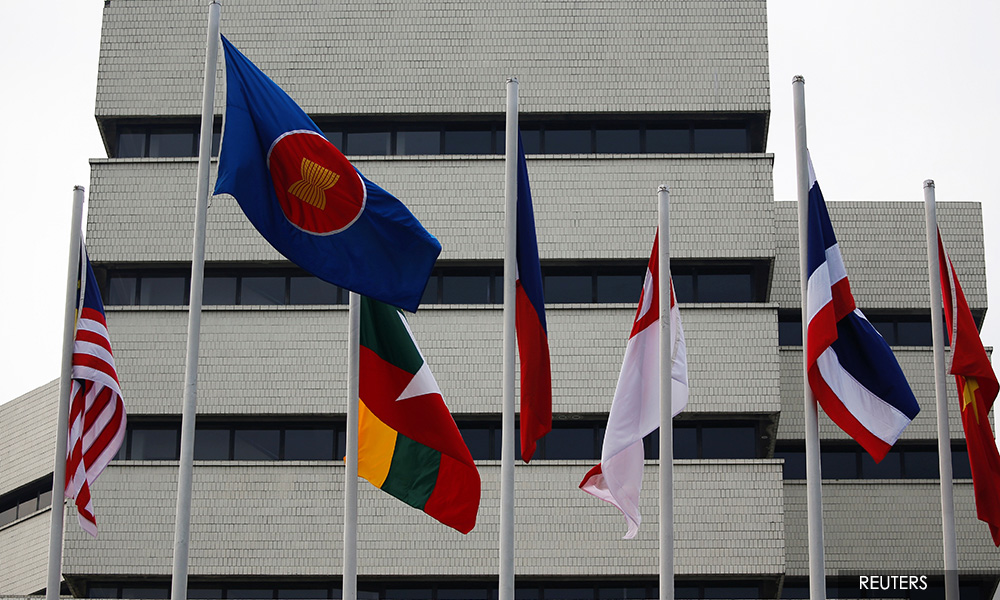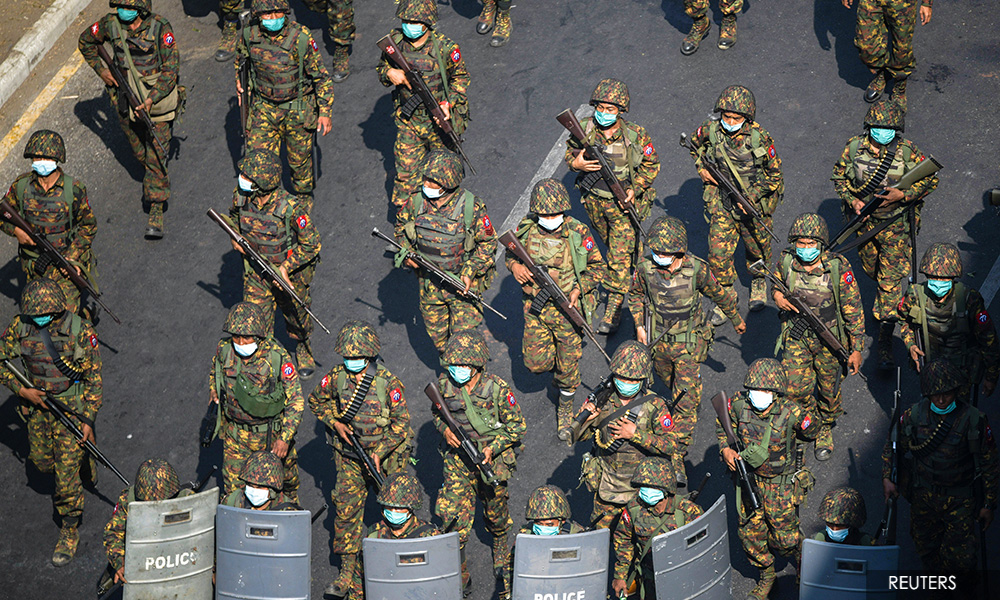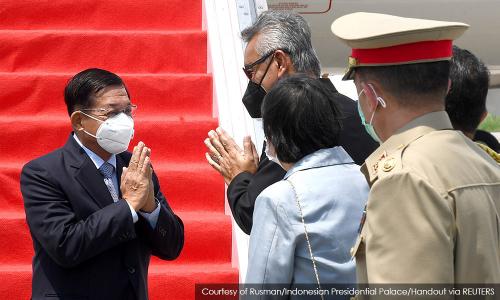LETTER | Myanmar - Asean must act to achieve consensus points
LETTER | Last Saturday, April 24, Asean leaders met in Jakarta to discuss the Myanmar crisis, including the junta’s crackdown on civilians since the Feb 1 coup.
Asean and Senior Gen Min Aung Hlaing (arriving for the Jakarta meet above, left) reached a “five-point consensus”, which Myanmar’s pro-democracy activists criticised sharply for its failure to address the human rights violations and post-coup violence.
As violence continues in the Southeast Asian country, Asean must now produce a road map that can ensure the return of stability while all parties seek larger and long-term solutions.
The onus is not just on Myanmar to engage but also for Asean to avoid the rhetoric trap by addressing the “how” as well as the “what”.
What can Asean do?
Asean’s five consensus points have been met with criticism online via the use of the hashtag #WhatsHappeninginMyanmar. Commentators have pointed out that these points do not necessarily address the desires of the electorate, particularly those who voted in Aung San Suu Kyi’s National League for Democracy and now have thrown their support behind the National Unity Government.
They also fail to address the status of political prisoners and the consequences for violent actions by the Tatmadaw thus far.
Asean called for an immediate cessation of violence coupled with restraint, constructive dialogue among all parties to seek a peaceful solution in the interests of the people, a special envoy of the Asean chair to facilitate mediation of the dialogue process with the assistance of the secretary-general of Asean, the provision of humanitarian assistance via the Asean Coordinating Centre for Humanitarian Assistance (AHA), and for the special envoy to visit Myanmar to meet with all concerned parties.
At the same meeting, Malaysian Prime Minister Muhyiddin Yassin forwarded three of his own suggestions: de-escalating the situation on the ground and halting violence against citizens, the prompt and unconditional release of political detainees and for Myanmar to provide the Asean chair and secretary-general with access to the nation.

To address the trust deficit between the relevant parties in Myanmar, a special envoy – someone who commands the respect of Asean, understands the nuances of Myanmar and is assisted by a team – should facilitate dialogue to ensure that the call for de-escalation is not merely empty rhetoric.
This team should prepare and present periodic, publicly available reports to Asean leaders and foreign ministers, as well as brief all East Asia Summit members.
The Tatmadaw must also ensure that the visiting Asean delegation has access to engage with not just the NUG and the EAOs, but also imprisoned politicians and dissidents if outright release is too ambitious a step.
The rhetoric trap
If these first steps can be taken, subsequently allowing international civil society groups into the country to perform humanitarian work, such as healthcare services, would be a show of good faith on the part of the Tatmadaw.
The global community, too, must play its role: Asean’s efforts should be supported by the United Nations Security Council of which Vietnam is currently president.
Vietnam should work to coordinate UNSC support for Asean’s work in and with Myanmar to bridge the conversation and seek a solution that includes justice for peaceful citizen protestors.
Asean member states should also be wary of forestalling dialogue efforts by paying undue heed to the principle of non-interference. It must continue discussions and check in to avoid meetings being viewed as mere rhetoric – this would be disastrous for both the people of Myanmar and Asean itself.
All member states must try and address the issue together, as a fundamental and unchangeable fact is that Myanmar and the rest of Asean are neighbours.

The Tatmadaw said it would give “careful consideration” to these constructive suggestions but emphasised that its priority would, for now, remain the restoration of “peace and tranquillity”.
This stance is detrimental to peace as the Tatmadaw plays a central role in being part of the solution, and its willingness to cooperate with other member states and the people of Myanmar is crucial to ending the state-sanctioned violence and restoring peace and stability to the country.
Myanmar shutting its doors to the world will not permanently secure Tatmadaw power – a nation is nothing without its citizenry, and the opposition between the armed forces and protesters will only result in the nation turning into a failed state even as medical services and the economy continue to falter.
Constructive and peaceful cooperation is key to stability and, eventually, a cohesive solution.
TASHNY SUKUMARAN is a senior analyst with the Institute of Strategic and International Studies (Isis) Malaysia.
The views expressed here are those of the author/contributor and do not necessarily represent the views of Malaysiakini.
RM12.50 / month
- Unlimited access to award-winning journalism
- Comment and share your opinions on all our articles
- Gift interesting stories to your friends
- Tax deductable
